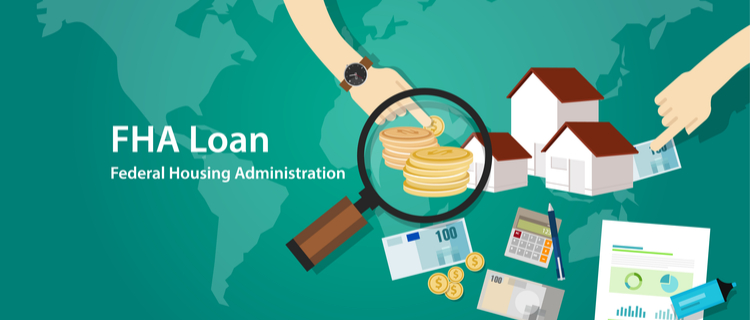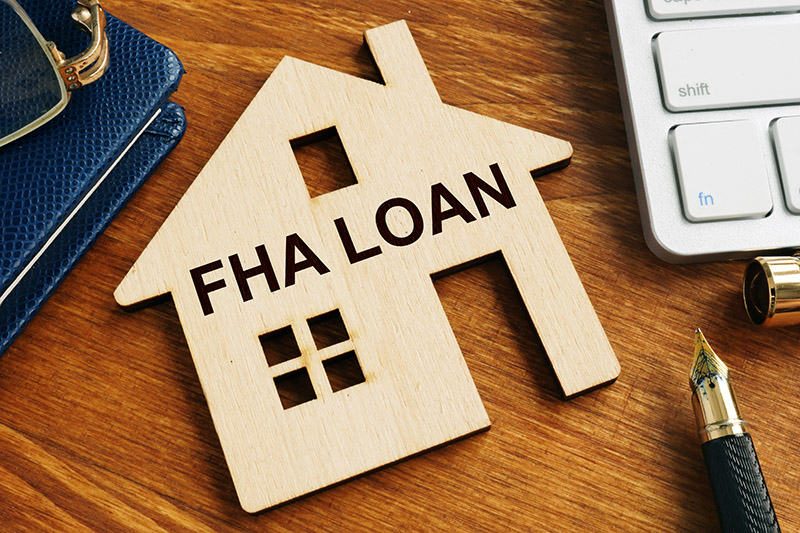An FHA loan, backed by the Federal Housing Administration, is designed to help individuals and families achieve their dream of homeownership. Unlike conventional mortgages, FHA loans offer more flexible qualification criteria and require lower down payments.

Eligibility Requirements
Credit Score Requirements
One of the advantages of FHA loans is that they typically accept lower credit scores compared to conventional loans. However, a minimum credit score of 580 is generally required to qualify for the lowest down payment option.
Down Payment Requirements
FHA loans are known for their low down payment requirements, with some borrowers able to qualify with as little as 3.5% down. This makes homeownership more accessible to individuals who may not have substantial savings.
Debt-to-Income Ratio
Lenders also consider the borrower’s debt-to-income ratio when determining eligibility for an FHA loan. Generally, a ratio of 43% or lower is required, although exceptions may be made in certain circumstances.
Advantages of FHA Loans
Lower Down Payment
The ability to make a smaller down payment is one of the primary advantages of FHA loans. This makes homeownership more attainable for individuals who may not have significant savings for a traditional 20% down payment.
Flexible Credit Requirements
FHA loans are known for their lenient credit requirements, making them accessible to borrowers with less-than-perfect credit histories. This flexibility can be particularly beneficial for first-time homebuyers or individuals with past financial challenges.
Lower Interest Rates
In some cases, FHA loans may offer lower interest rates compared to conventional mortgages. This can result in lower monthly payments and potentially significant savings over the life of the loan.
Disadvantages of FHA Loans
Mortgage Insurance Premiums
One drawback of FHA loans is the requirement for mortgage insurance premiums (MIP). Borrowers are typically required to pay an upfront premium at closing, as well as ongoing monthly premiums for the life of the loan.
Property Standards
FHA loans require that the property meets certain minimum standards set by the Department of Housing and Urban Development (HUD). This means that the home must be in good condition and free from significant defects.
Loan Limits
FHA loans are subject to maximum loan limits, which vary by location. Borrowers looking to purchase a higher-priced home may find themselves limited by these restrictions.
Applying for an FHA Loan
Pre-Approval Process
Before shopping for a home, prospective buyers should seek pre-approval for an FHA loan. This involves submitting an application and providing documentation of income, assets, and employment history.
Required Documentation
To apply for an FHA loan, borrowers must provide various documents, including pay stubs, tax returns, and bank statements. These documents help lenders assess the borrower’s financial situation and determine eligibility.
Loan Application Steps
The loan application process typically involves completing a loan application, undergoing a credit check, and providing documentation to verify income and assets. Once approved, the borrower can begin shopping for a home.
FHA Loan Types
Purchase Loans
Purchase loans are used to finance the purchase of a primary residence. Borrowers can use an FHA loan to buy a single-family home, condominium, or multi-unit property (up to four units).
Streamline Refinance Loans
Streamline refinance loans allow borrowers with existing FHA loans to refinance their mortgage without a full credit check or appraisal. This can result in lower monthly payments or a shorter loan term.
Cash-Out Refinance Loans
Cash-out refinance loans allow borrowers to refinance their mortgage and take out additional cash from the equity in their home. This can be useful for home improvements, debt consolidation, or other financial needs.
Comparing FHA Loans to Conventional Loans
Down Payment Requirements
While FHA loans typically require a lower down payment compared to conventional loans, borrowers with excellent credit may be able to secure a conventional loan with a similar down payment.
Credit Score Requirements
Conventional loans generally have stricter credit score requirements compared to FHA loans. Borrowers with excellent credit may qualify for better interest rates and terms with a conventional loan.
Mortgage Insurance
Unlike FHA loans, conventional loans do not always require mortgage insurance. Borrowers who can make a substantial down payment (usually 20% or more) may be able to avoid mortgage insurance altogether.
FHA Loan Limits
How FHA Loan Limits Are Determined
FHA loan limits are determined based on the median home prices in a given area. These limits vary by county and are adjusted annually to reflect changes in the housing market.
Regional Variations in Loan Limits
Loan limits can vary significantly from one area to another. Higher-cost areas typically have higher loan limits, allowing borrowers to finance more expensive properties with an FHA loan.
FHA Loan Myths Debunked
FHA Loans Are Only for First-Time Homebuyers
While FHA loans are popular among first-time homebuyers, they are not limited to this group. Repeat buyers can also qualify for FHA financing, provided they meet the eligibility requirements.
FHA Loans Are Only for Low-Income Borrowers
While FHA loans are designed to help low- to moderate-income borrowers, there is no strict income limit for eligibility. Borrowers of all income levels can qualify for an FHA loan as long as they meet the other requirements.
FHA Loans Take Longer to Close
While it’s true that FHA loans may have slightly more stringent appraisal and inspection requirements, they typically do not take significantly longer to close compared to conventional loans.
Tips for Getting Approved
Improve Credit Score
One of the best ways to improve your chances of getting approved for an FHA loan is to improve your credit score. Paying bills on time, reducing debt, and disputing any errors on your credit report can all help boost your score.
Save for a Larger Down Payment
While FHA loans require a lower down payment compared to conventional loans, putting more money down can help lower your monthly payments and reduce the amount of mortgage insurance you’ll pay over time.
Reduce Debt-to-Income Ratio
Lenders look at your debt-to-income ratio when determining your eligibility for an FHA loan. Paying off existing debt or increasing your income can help lower this ratio and improve your chances of approval.
Common Pitfalls to Avoid
Ignoring Credit Score Requirements
While FHA loans may accept lower credit scores compared to conventional loans, having a higher credit score can still result in better terms and lower interest rates. It’s essential to work on improving your credit before applying for a loan.
Overlooking Property Standards
FHA loans require that the property meets certain minimum standards set by HUD. Before making an offer on a home, it’s essential to have it inspected to ensure it meets these requirements.
Not Understanding Mortgage Insurance
FHA loans require both upfront and ongoing mortgage insurance premiums. It’s essential to understand how these premiums are calculated and factor them into your overall homeownership costs.
Steps After Loan Approval
Home Inspection
After your loan is approved, you’ll need to schedule a home inspection to ensure the property meets FHA standards. If any issues are found, they may need to be addressed before the loan can close.
Closing Process
During the closing process, you’ll sign all the necessary paperwork and pay any closing costs and fees. Once everything is finalized, ownership of the home will transfer to you, and you’ll receive the keys.
Post-Closing Responsibilities
After closing on your FHA loan, you’ll need to maintain the property and keep up with mortgage payments. It’s essential to budget for ongoing maintenance and repairs to protect your investment.
FHA Loan Alternatives
USDA Loans
USDA loans, backed by the U.S. Department of Agriculture, offer low- to moderate-income borrowers the opportunity to purchase a home in rural areas with no down payment required.
VA Loans
VA loans, available to eligible veterans, active-duty service members, and their spouses, offer competitive interest rates and no down payment requirement. These loans are guaranteed by the Department of Veterans Affairs.
Conventional Loans
Conventional loans, not backed by a government agency, typically require higher credit scores and down payments compared to FHA loans. However, borrowers with excellent credit may qualify for better terms and lower interest rates.
FHA Loan FAQs
What Credit Score Do I Need for an FHA Loan?
The minimum credit score required for an FHA loan is typically 580. However, borrowers with lower credit scores may still qualify with a larger down payment or other compensating factors.
How Much Do I Need for a Down Payment on an FHA Loan?
FHA loans require a minimum down payment of 3.5% of the purchase price. However, borrowers with higher credit scores may be able to qualify for a lower down payment option.
Can I Use an FHA Loan for a Second Home?
FHA loans are intended for primary residences only and cannot be used to finance a second home or investment property.
What Are the Closing Costs for an FHA Loan?
Closing costs for an FHA loan typically range from 2% to 5% of the purchase price. These costs may include origination fees, appraisal fees, title insurance, and prepaid expenses such as property taxes and homeowners insurance.
How Long Does It Take to Get Approved for an FHA Loan?
The time it takes to get approved for an FHA loan can vary depending on factors such as the lender’s workload and the complexity of your financial situation. In general, the process takes anywhere from a few weeks to a few months.
Conclusion
In conclusion, FHA loans offer a valuable opportunity for individuals and families to achieve homeownership with more flexible qualification criteria and lower down payment requirements. By understanding the eligibility requirements, advantages, and disadvantages of FHA loans, borrowers can make informed decisions about their home financing options

